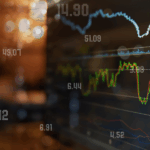Despite facing a range of global economic hurdles, Dutch startups have shown remarkable resilience in the third quarter of 2025. These companies demonstrate Europe’s strong footing in the innovation sector through continuous collaboration, leveraging quality talent, and utilizing the academic excellence of universities. The Netherlands, particularly cities like Amsterdam and Utrecht, have become notable hubs for startups, raising substantial capital to grow their ventures.
An examination of previous years reveals that the Netherlands has consistently maintained a robust startup ecosystem, often ranking among Europe’s top countries for entrepreneurship and innovation. Consistently gathering significant investment, Dutch startups have been able to transition from early seed stages to more mature stages. This trend has remained stable over the years, indicating a solid growth trajectory.
What is the funding scale in Q3 2025?
Dutch startups amassed a total of €560.5 million in Q3 2025, illustrating a continuing momentum in funding. Large-scale investments were notably concentrated around deals ranging from €100 million to €250 million. The capital influx underscored the strength and sustainability of the Netherlands’ entrepreneurial landscape. Late-stage Series C organizations raised €192.3 million, while Series B and early-stage startups secured €163.1 million and €128.6 million, respectively. Seed and pre-seed rounds also received combined funding exceeding €70 million.
Who are the key players in various sectors?
Several key players significantly influenced the Dutch startup scene in this period. Framer, based in Amsterdam, aims to integrate design and web-building, raising €85.6 million to further its goals. ViCentra in Utrecht, with its Kaleido insulin pump, garnered €72 million, focusing on medtech solutions tailored for user-specific needs. Additionally, startups like HyET Solaris and The Protein Brewery represent the energy and food-tech sectors, attracting significant investments for developing sustainable technologies. These companies reflect a varied tech landscape where multiple sectors show potential growth.
ViCentra’s CEO, Tom Arnold, emphasized the importance of adaptability in success, stating
“Our technology is designed to integrate seamlessly into users’ lives while delivering medical innovation.”
This mirrors a wider recognition within the startup community of the necessity to evolve continuously and respond to market needs.
Beyond financial contributions, startups play a vital role in tackling industry-specific issues such as sustainability and efficiency. Revyve, focused on creating alternative proteins, and Dexter Energy, working on optimizing renewable energy trading, reflect this shift. Ensuring that startups have access to financial and technological resources is essential for driving long-term success.
Tom Arnold from ViCentra spoke about the company’s innovative approach, noting
“Innovation isn’t just about new ideas; it’s about making meaningful changes.”
This resonates with the ongoing drive within the Dutch startup community to bring impactful solutions to market.
As startups continue to secure funding and navigate diverse sectors, they enhance their capability to address both existing and emerging challenges globally. Encouraging local growth provides foundations that bolster not only local economies but also contribute insights to global industry practices. Moving forward, consistent support for these ventures remains crucial, ensuring a steady development trajectory that other nations could aspire to replicate.









